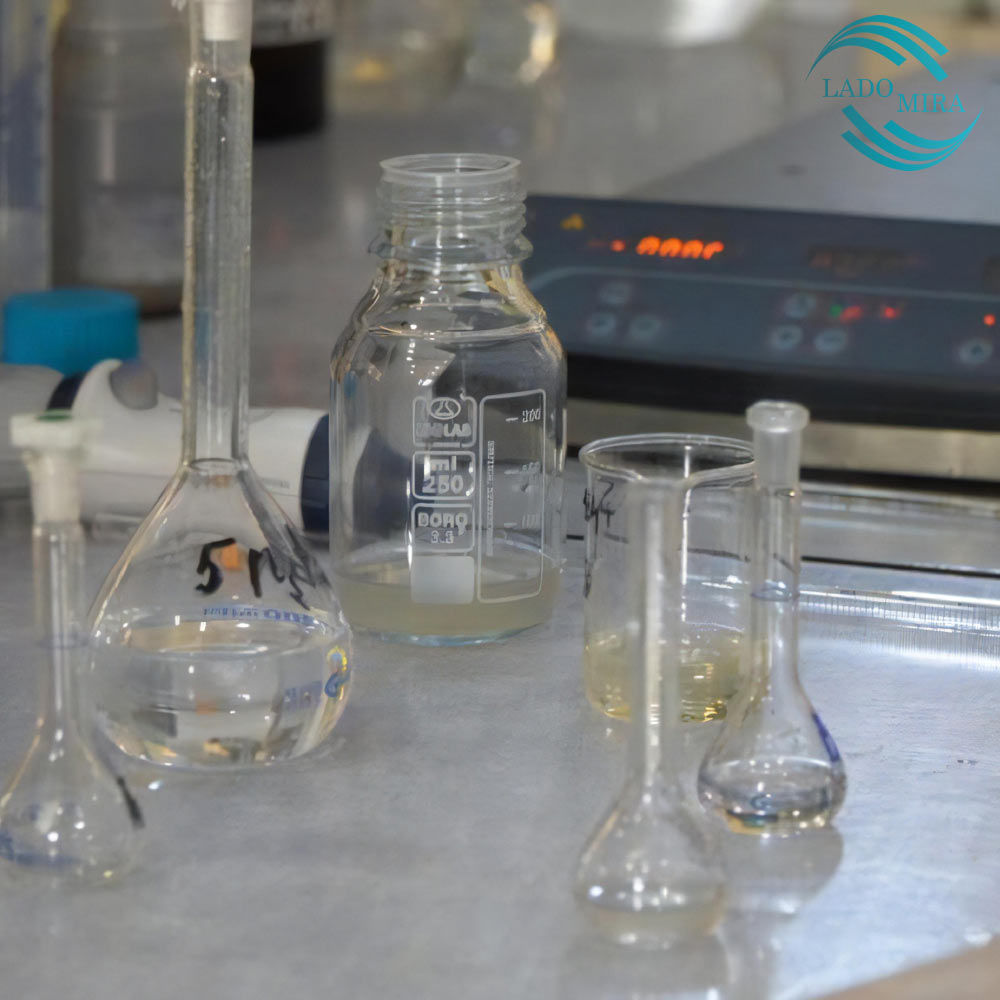Liquid paraffin is one of the petroleum derivatives with special physical and chemical characteristics, which has wide applications in various industries such as pharmaceutical, chemical, food, cosmetics and other industries. In this article, we will examine the ingredients, characteristics, application, advantages and disadvantages of its use.
Types of liquid paraffin:
- Sanitary liquid paraffin: Sanitary liquid paraffin (light) has shorter hydrocarbon chains and lower viscosity. This type of paraffin is usually used in the pharmaceutical, food and cosmetic industries.
- Industrial liquid paraffin: Industrial liquid paraffin (heavy) has longer carbon chains and higher viscosity. This type of paraffin is mostly used in industrial applications such as the production of chemicals and as a lubricant.
Features of liquid paraffin:
- Chemical stability: liquid paraffin is resistant to chemical decomposition and oxidation, this feature makes it suitable for long-term use in various applications.
- Viscosity: The viscosity of this product is different depending on the type of paraffin (light or heavy), which makes it widely used in different industries.
- Colorless and odorless: Since paraffin is colorless and odorless, it can easily be used in various food, pharmaceutical, and cosmetic products without causing an external effect on them.
- Combination ability: Paraffin can be combined as a suitable base material with other oils and fatty substances in the production of creams, lotions and cosmetic products.
- Non-toxic: In general, sanitary liquid paraffin is completely safe for use in food and cosmetics that are in direct contact with the skin.
Applications of sanitary liquid paraffin:
- Pharmaceutical industry: Hygienic liquid paraffin is used in pharmaceuticals as a base material in the production of medicinal creams and ointments. Also, this substance is used as a laxative in the treatment of some digestive problems.
- Cosmetic industry: liquid sanitary paraffin is used in the production of lotions, hydrating and moisturizing creams, tanning creams, wet wipes and skin care products. This substance creates a protective layer on the skin that prevents the evaporation of water on the surface of the skin and hair to maintain their moisture and protects the skin from the ultraviolet rays of the sun.
- Food industry: Hygienic paraffin is used in some food products as a protective or separating layer in production or storage processes against environmental factors. It is also used to make fruits shiny and prevent drying.
- Veterinary medicine: liquid sanitary paraffin is used as an oral laxative for pets and livestock. It is also used locally on the fingers and legs to eliminate small parasites.
Beekeepers use paper towels dipped in paraffin as a treatment for aphids and other mites.
Applications of industrial liquid paraffin:
- Textile industry: Liquid industrial paraffin in the textile industry increases the durability and quality of fabrics as a waterproof and softening property. It is also used as a lubricant for spinning and weaving machines.
- Chemical industries: industrial liquid paraffin has a special place in the production of waxes, greases and lubricants in various industries due to its chemical stability and lubrication properties.
- Electrical and electronic industries: this type of paraffin is used as a thermal fluid or a non-conductive coolant in electrical components, because it does not conduct electricity, for example, as transformer oil or as insulation or coolant in high pressure switchboards. is used.
- Energy production: industrial paraffin, which is also known as kerosene, is used today as fuel in rockets and airplanes or to produce energy and heat in factories.
Disadvantages of liquid paraffin:
- Flammability: liquid paraffin can cause fire especially when it is exposed to high heat.
- Petroleum origin: Paraffin is one of the petroleum products whose consumption can be worrying in terms of renewable resources and environmental sustainability.
- Possibility of allergic reactions: Some people may experience skin irritations and be allergic to this material, although liquid sanitary paraffins are generally safe.
- Environmental issues: Since paraffin is a petroleum derivative, its low degradability can lead to environmental pollution in some cases.
Finally, liquid paraffin with its special features and light and heavy compounds as a multi-purpose material has wide applications in various industries such as food, pharmaceutical, and chemical industries. Choosing the right liquid paraffin based on the specific needs of each industry and paying attention to safety and environmental issues will increase productivity and reduce the risks associated with the use of this material. We suggest to get more information for the bulk order of this widely used product, visit the Ladomira online store or contact our business experts at the Ladomira Export Consortium.

